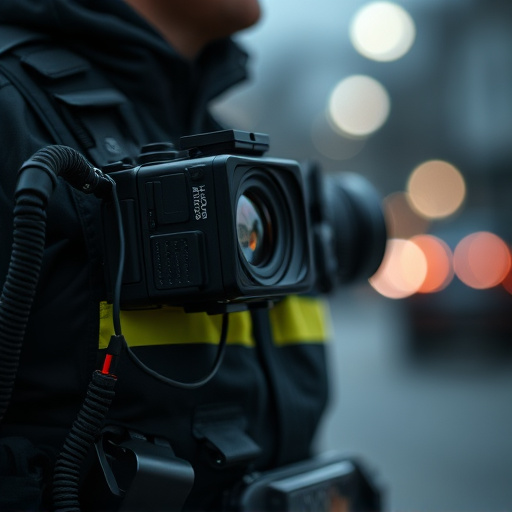Body-worn hidden cameras (BWHCs) are transforming security across sectors with real-time, high-quality footage from the wearer's perspective, empowering personnel during critical incidents and enhancing safety. Although they offer benefits like transparency, deterrence of threats, and improved operational well-being, BWHCs also raise privacy concerns, financial burdens, and data management challenges. Despite drawbacks, their advantages make them valuable tools for targeted security strategies. As technology advances, striking a balance between security and civil liberties is crucial to maintain public trust, requiring ongoing discussions around ethical frameworks, regulations, and transparency in implementation.
“Exploring the Impact of Body-Worn Hidden Cameras on Security: A Comprehensive Overview
In an era where transparency and accountability are paramount, body-worn hidden cameras have emerged as a transformative tool for security measures. This article delves into the multifaceted role these devices play in enhancing safety protocols. We explore their advantages, from improved incident response to ethical dilemmas, including privacy concerns. By examining both the benefits and drawbacks, we provide insights into the future of body-worn hidden camera technology and its potential to shape security practices.”
Understanding Body-Worn Hidden Cameras: Their Role in Security
Body-worn hidden cameras, also known as wearable surveillance devices, are becoming increasingly prevalent in security operations across various sectors. These compact and discrete cameras offer a unique perspective by capturing real-time footage from the wearer’s point of view. Their primary role is to enhance security measures by providing evidence, improving accountability, and facilitating better decision-making during critical incidents.
With their advanced features, body-worn hidden cameras can capture high-quality video and audio, ensuring every detail is recorded. This technology empowers security personnel to navigate complex situations with enhanced awareness and provides valuable insights for post-incident analysis. By deploying these cameras, organizations can maintain a higher level of safety and security, deter potential threats, and contribute to the overall well-being of their operations.
Advantages and Disadvantages of Implementation
The implementation of body-worn hidden cameras has emerged as a significant tool in enhancing security measures for various sectors, from law enforcement to private security companies. These compact and discreet devices offer numerous advantages. For one, they provide an objective record of interactions between personnel and individuals they encounter, ensuring transparency and accountability. This can serve as crucial evidence in investigations and help maintain fair practices. Moreover, the presence of such cameras can act as a deterrent to inappropriate behavior or illegal activities, creating a safer environment.
However, there are also potential drawbacks to consider. Privacy concerns top the list, as these cameras capture intimate details and interactions without explicit consent from everyone involved. This raises ethical questions, especially in civilian settings. Additionally, the cost of purchasing and maintaining body-worn hidden cameras can be substantial for organizations, particularly smaller ones. There’s also the challenge of data storage and management, ensuring secure access to footage while preserving confidentiality when needed. Despite these challenges, the benefits of using body-worn hidden cameras in specific contexts are becoming increasingly recognized as a valuable asset in modern security strategies.
Ethical Considerations and Future Prospects
The introduction of body-worn hidden cameras has significantly impacted security operations, raising intriguing ethical considerations. As these compact and discrete devices become more prevalent, ensuring privacy rights and responsible data handling is paramount. Concerns surround the potential for overreach in surveillance, especially when used on individuals without explicit consent. Striking a balance between enhancing security measures and preserving civil liberties is essential to maintaining public trust.
Looking ahead, technology advancements suggest an even more integrated role for body-worn hidden cameras. Improved image quality, enhanced privacy settings, and better data management systems could shape the future of security operations. While these innovations offer promising solutions, ongoing discussions about ethical frameworks, regulatory measures, and transparent practices are necessary to guide responsible implementation. This ensures that the benefits of such technology are realized while mitigating potential risks in a rapidly evolving digital landscape.
